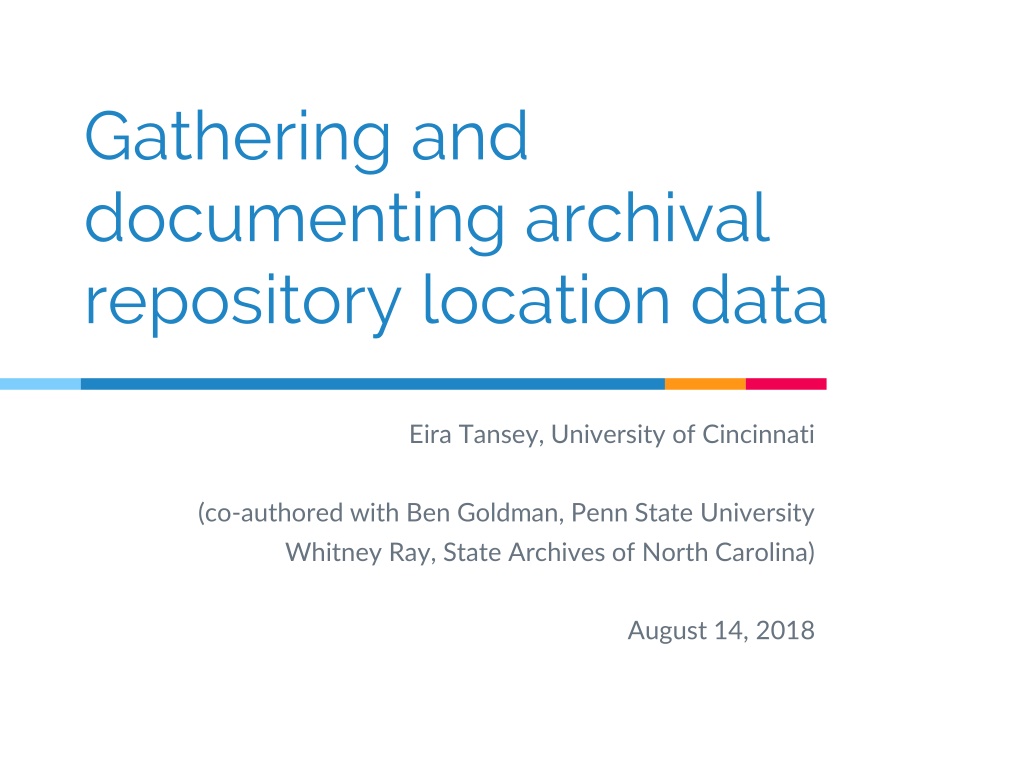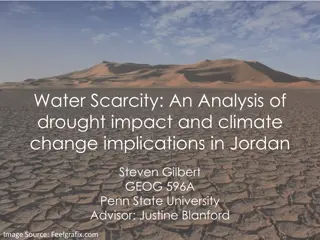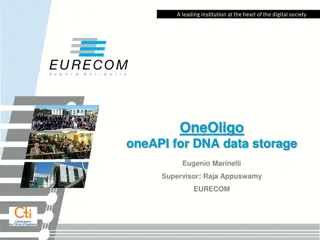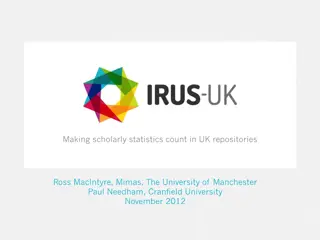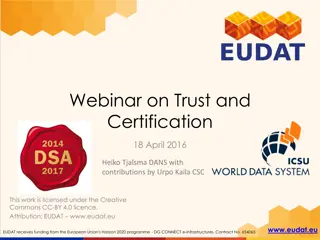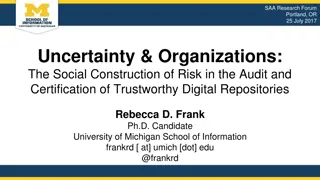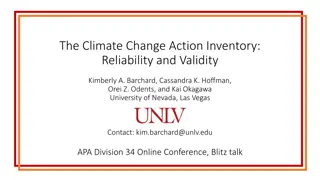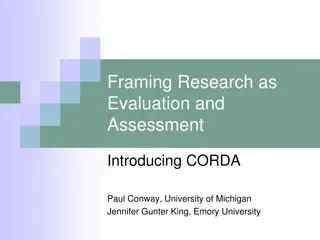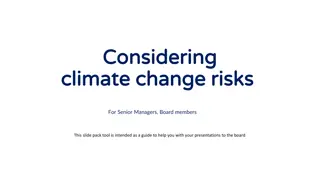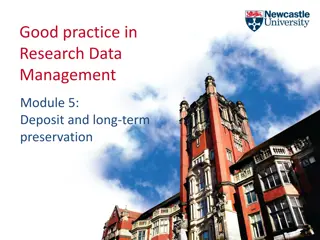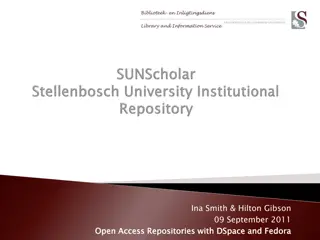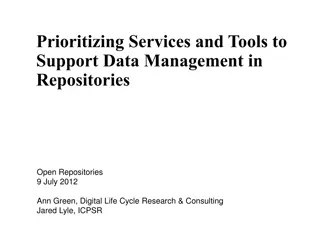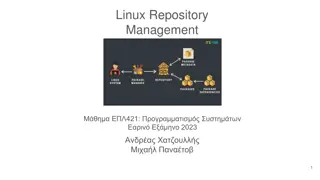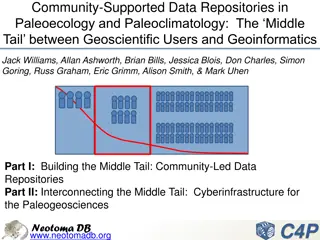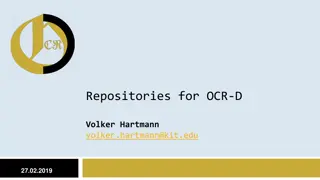Assessing Climate Change Risks on American Archival Repositories
This research collaboration led by Eira Tansey and colleagues discusses the potential impact of climate change on archival repositories in the United States. Findings reveal alarming risks such as flood exposure, sea-level rise, and temperature changes, urging for proactive disaster preparedness and collaboration among institutions. The goals include creating a comprehensive dataset of archival repositories to enhance preparedness and advocacy efforts.
Download Presentation

Please find below an Image/Link to download the presentation.
The content on the website is provided AS IS for your information and personal use only. It may not be sold, licensed, or shared on other websites without obtaining consent from the author. Download presentation by click this link. If you encounter any issues during the download, it is possible that the publisher has removed the file from their server.
E N D
Presentation Transcript
Gathering and documenting archival repository location data Eira Tansey, University of Cincinnati (co-authored with Ben Goldman, Penn State University Whitney Ray, State Archives of North Carolina) August 14, 2018
Where this all started... Which American archival repositories are exposed to the effects of climate change in the coming decades? 2
Methods Intersect 1232 archive locations with environmental data and plausible climate change scenarios 3
Major Findings 30 locations within a 500-year floodplain 18 coastal locations that would likely be inundated by 1.8-meter (6 feet) sea level rise 84 coastal locations that would likely be inundated by a current category 4 storm surge event if it were a direct hit to their coastline 219 coastal locations were found to be at some risk of inundation from the combined effects of future sea- level rise and storm surge 92 locations may experience a 10-degree or greater annual temperature change by 2100 4
But wait, theres more! We have work to do: disaster preparedness, assessment, cooperation, advocacy1 We need more complete data on our repository locations to inform future efforts 1. Mazurczyk, T., Piekielek, N., Tansey, E. & Goldman, B. (2018). American Archives and Climate Change: Risks and Adaptation. Climate Risk Management, 20(111-125). https://doi.org/10.1080/01576895.2015.1136226
Goals Where s the rest of the (Repo)Data? Archives don t have anything comparable to IMLS s Museum Universe Data File1 ArchiveGrid data is primarily institutions that have the resources to create and share finding aids online (i.e., well-resourced institutions) 1. Institute of Museum and Library Services (2015). Museum universe data file FY 2015 Q3 [Data file]. Retrieved from https://data.imls.gov/Museum-Universe-Data-File/Museum-Universe- Data-File-FY-2015-Q3/ku5e- zr2b?_ga=2.19491390.766890092.1524521732- 825039837.1524521732
Goals Goals Create comprehensive dataset of archival repositories in the United States Categorize archival repositories by address and type Share the data in open, reusable format
Methods Methods: Data Gathering 51 SHRABs and/or State Archives 11 regional archives orgs 7 national archives orgs 46 state-level archives associations 30 metropolitan archives groups 2 individual repositories 4 others
Findings Findings: Limitations Existing data sources Data quality was highly variable Categorization Is it an archive? Subject of material, institutional control Potential over-representation of some categories
Whats Next Currently 25,000 available data points for 35 states plus Washington DC More states will come online later this year Significant potential reuse for this data Accessing the data: https://github.com/tanseyem/RepoData Stewardship of this data for the future is TBD If you use it, we d love to hear from you! Contact eira.tansey@uc.edu
